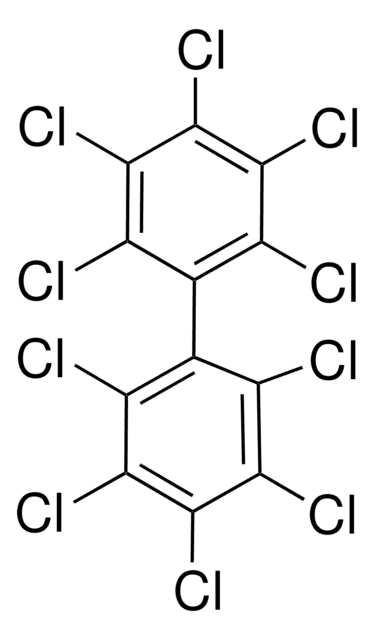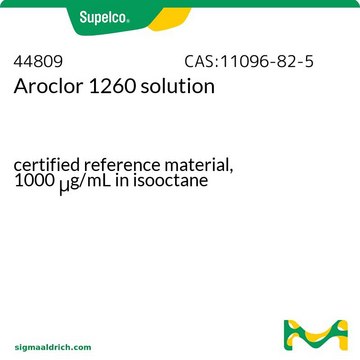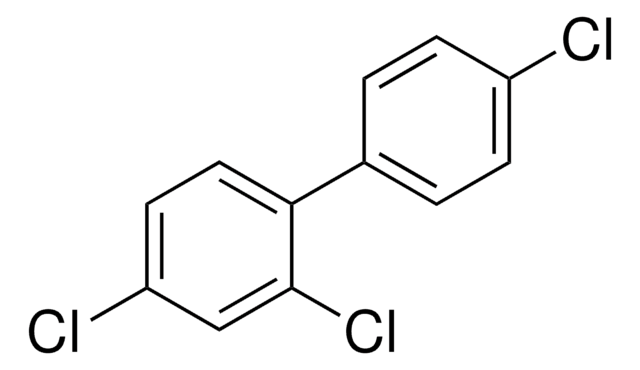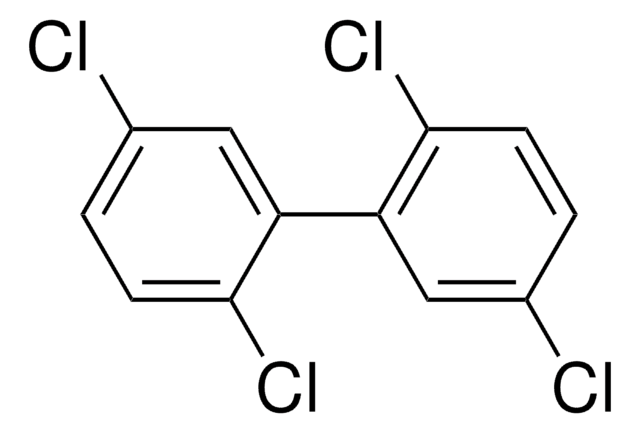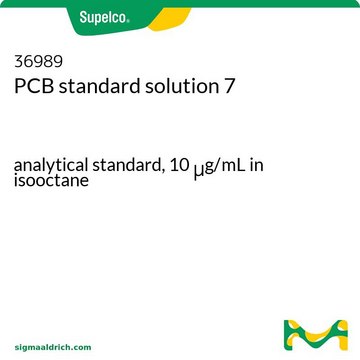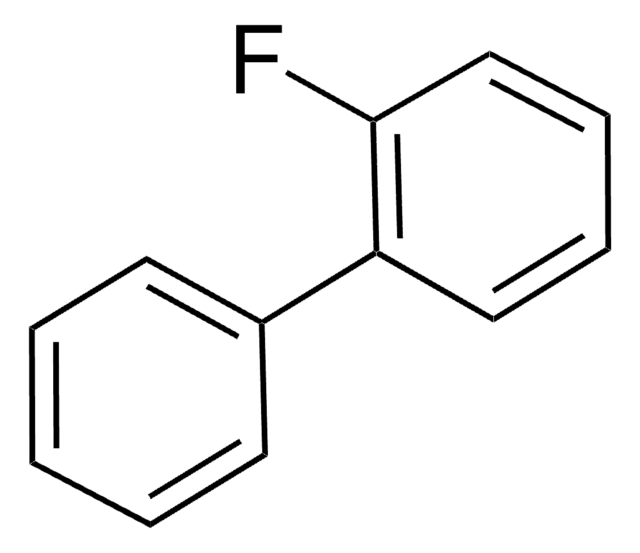31092
PCB No 209
analytical standard
Sinónimos:
Decachlorobiphenyl, 2,2′,3,3′,4,4′,5,5′,6,6′-PCB
About This Item
Productos recomendados
grade
analytical standard
Quality Level
shelf life
limited shelf life, expiry date on the label
technique(s)
HPLC: suitable
gas chromatography (GC): suitable
application(s)
environmental
format
neat
SMILES string
Clc1c(Cl)c(Cl)c(c(Cl)c1Cl)-c2c(Cl)c(Cl)c(Cl)c(Cl)c2Cl
InChI
1S/C12Cl10/c13-3-1(4(14)8(18)11(21)7(3)17)2-5(15)9(19)12(22)10(20)6(2)16
InChI key
ONXPZLFXDMAPRO-UHFFFAOYSA-N
¿Está buscando productos similares? Visita Guía de comparación de productos
General description
Application
signalword
Warning
hcodes
Hazard Classifications
Aquatic Acute 1 - Aquatic Chronic 1 - STOT RE 2
target_organs
Endocrine system
Storage Class
11 - Combustible Solids
wgk_germany
WGK 3
flash_point_f
>212.0 °F
flash_point_c
> 100.0 °C
ppe
dust mask type N95 (US), Eyeshields, Gloves
Elija entre una de las versiones más recientes:
Certificados de análisis (COA)
¿No ve la versión correcta?
Si necesita una versión concreta, puede buscar un certificado específico por el número de lote.
¿Ya tiene este producto?
Encuentre la documentación para los productos que ha comprado recientemente en la Biblioteca de documentos.
Protocolos
US EPA Method 8081: GC Analysis of Organochlorine Pesticides on Equity®-5
Nuestro equipo de científicos tiene experiencia en todas las áreas de investigación: Ciencias de la vida, Ciencia de los materiales, Síntesis química, Cromatografía, Analítica y muchas otras.
Póngase en contacto con el Servicio técnico